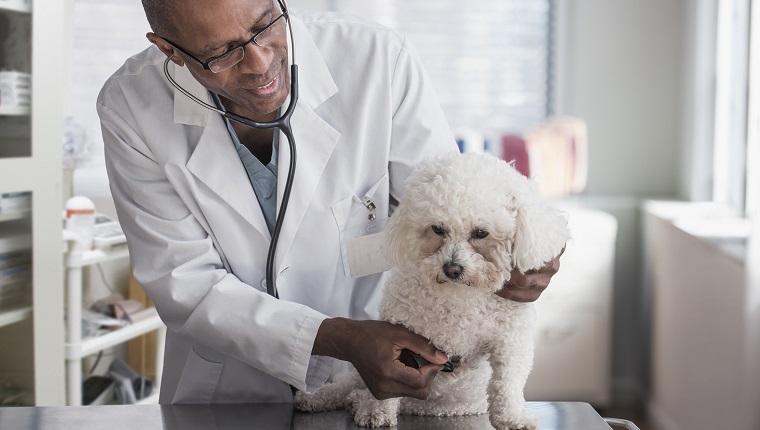Laryngitis in dogs is a condition where the larynx becomes inflamed. It’s usually caused by a viral or bacterial infection that affects the vocal chords.
The condition begins with the animal experiencing a dry cough, but if it isn’t treated quickly enough, it can develop into a suffocation.
If you see signs that your dog might have laryngitis, then you must consult your veterinarian for a proper diagnosis and course of treatment. Here’s what you should know about the symptoms, causes, and treatments for laryngitis in dogs.
Symptoms Of Laryngitis In Dogs
Laryngitis in dogs is most frequently marked by the symptom of coughing. The coughing can be a dry cough or a wet cough.
Some of the other common symptoms include:
- Sounding hoarse when barking
- Issues swallowing food properly
- Bad breath
- Trouble breathing, which leads to panting
Causes Of Laryngitis In Dogs

The cause of laryngitis in dogs is mostly either a viral infection or a bacterial infection.
Some of the other common causes may include:
- Too much barking
- Inhaling smoke or dust
- Tonsillitis
Brachycephalic dogs — canines with flattened faces — are more likely to develop laryngitis. This is because brachycephalic dogs have shorter nasal passages and larynxes.
Some examples of brachycephalic dogs include Pugs, Boxers, and Bulldogs.
Treatments For Laryngitis In Dogs
If your veterinarian suspects your dog has laryngitis, they’ll ask you about any relevant symptoms and examine the dog. They’ll also pay attention to the dog’s breathing. In some cases, the vet may perform an examination of the larynx, along with X-rays and blood tests.
Once your vet confirms the diagnosis, they might recommend anti-inflammatory medicine to help with any swelling. They may also prescribe cough medicines.
If the vet determines that there is an airway obstruction, they’ll insert a tracheotomy tube into the dog’s neck. This will allow the dog to breathe easier. In more severe cases, a dog may require surgery.
Has your dog ever had laryngitis? How did your vet treat it? Tell us all about it in the comments below!





